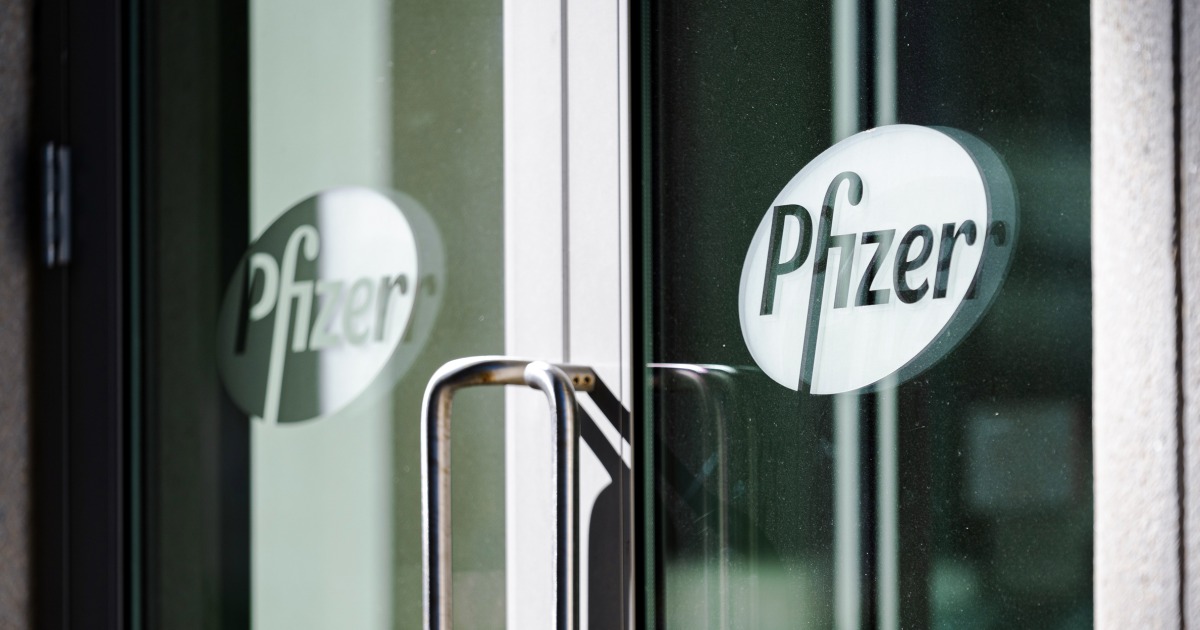
The Food and Drug Administration on Friday approved Pfizer’s treatment for a rare genetic bleeding disorder, making it the company’s first-ever gene therapy to win clearance in the U.S.
The agency greenlit the drug, which will be marketed as Beqvez, for adults with moderate to severe hemophilia B who meet certain requirements.
The treatment will be available by prescription to eligible patients this quarter, a Pfizer spokesperson told CNBC. It has a hefty $3.5 million price tag, before insurance and other rebates, the spokesperson added, making it by far one of the most expensive drugs in the U.S.
More than 7,000 people in the U.S. are living with the debilitating condition, which predominantly affects men, according to an advocacy group. The condition is caused by insufficient levels of a certain protein that helps blood form clots to stop bleeding and seal wounds. Without that protein, called factor IX, patients with hemophilia B bruise easily and bleed more frequently and for longer periods of time.
Beqvez is a one-time treatment designed to enable patients to produce factor IX themselves and prevent and control bleeding. In a late-stage trial, the drug was superior to the often-cumbersome standard treatment for hemophilia B, which involves administering the protein multiple times a week or a month through the veins.
“Many people with hemophilia B struggle with the commitment and lifestyle disruption of regular [factor IX] infusions, as well as spontaneous bleeding episodes, which can lead to painful joint damage and mobility issues,” said Dr. Adam Cuker, director of Penn’s Comprehensive and Hemophilia Thrombosis Program, in a Pfizer release on Friday.
Pfizer’s drug “has the potential to be transformative for appropriate patients by reducing both the medical and treatment burden over the long term,” Cuker added.
More from CNBC
The approval is a big step for Pfizer, which is trying to regain its footing following the rapid decline of its Covid business last year. The company is betting big on cancer drugs and treatments for other disease areas to help turn its business around.
Pfizer is one of several companies to invest in the rapidly growing field of gene and cell therapies. They are one-time, high-cost treatments that target a patient’s genetic source or cell to cure or significantly alter the course of a disease. Some health experts expect cell and gene therapies to replace traditional lifelong treatments that people take to manage chronic diseases.
Pfizer gained the rights to produce and market Beqvez from Spark Therapeutics in 2014.
The company is offering payers a warranty program to cover patients who receive Beqvez, a spokesperson told CNBC. Pfizer expects that program to offer “financial protections by insuring against the risk of efficacy failure,” they added.
The gene therapy will compete with Australia-based CSL Behring’s Hemgenix, a similar treatment that won FDA approval for hemophilia B in 2022. That drug has a similar list price of $3.5 million in the U.S., before insurance and other rebates.
Notably, some health experts have said that high costs and logistical issues, among other factors, have limited the uptake of Hemgenix and another approved gene therapy for the more common hemophilia A.
Pfizer also seeks FDA approval for its experimental antibody, marstacimab, to treat hemophilia A and B. The company is also developing a gene therapy for Duchenne muscular dystrophy, a genetic disorder that causes muscles to weaken gradually.






